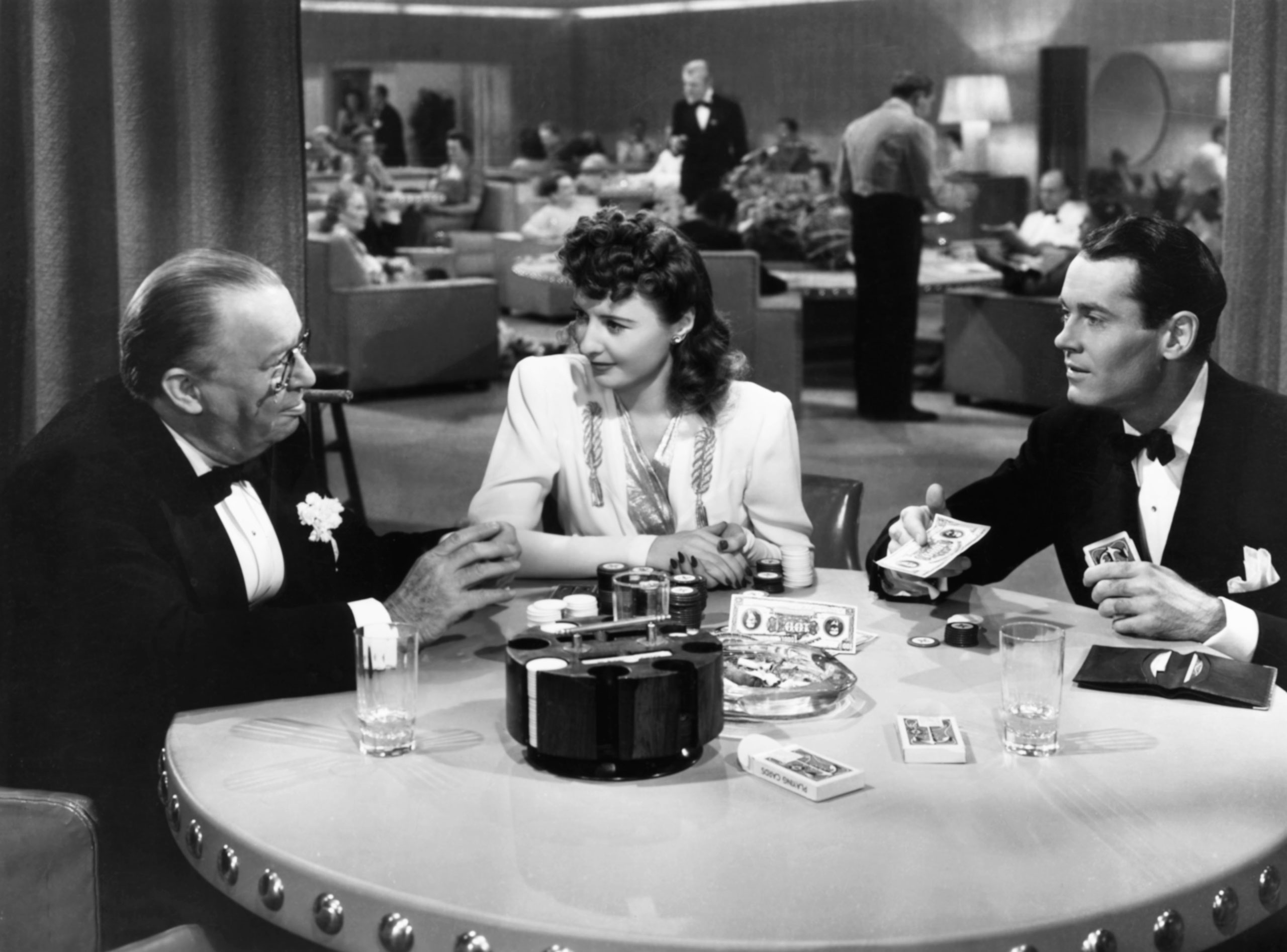When anyone asks my favorite movie of all time, my answer is immediate and always the same. Writer-director Preston Sturges’ The Lady Eve is the greatest American movie comedy, period, a definitive movie about the unreliability of other humans, about the cruelties people can inflict upon each other in the name of love (played for laughs, and easily getting them), about the ways in which people need to truly see themselves, and one another, for love to work. Barbara Stanwyck is Jean Harrington, a card sharp plying her trade on an ocean liner when she spots a delectable mark: the awkward but terrifically handsome herpetologist and brewery heir Charles Pike (Henry Fonda) sits there in the dining room, his nose buried in a book. (It’s called Are Snakes Necessary?) Jean works her considerable feminine wiles on Charles as a runup to cheating him out of some of his dough. Then she decides she really likes him and tries to abort the con, but no dice: Charles’ right hand man Muggsy—played by the great William Demarest, possessed of one of the most supremely skeptical faces in movies—tips him off. He’s understandably furious, and though Jean tries to explain, he wants nothing to do with her. Deeply hurt, she plans an act of revenge which, unsurprisingly, draws out the worst in both of them.
Sturges, a rich kid himself, could dream up the most preposterous situations, with the wittiest dialogue curlicued around them. (A rich dowager’s one-line assessment of a dinner party: “The fish was a poem!”) His actors are perfectly in tune with his methods and his madness: Fonda plays the innocent dupe perfectly, but there’s a kind of stubborn imperiousness about him too—after all, he’s so rich he can afford to be a bit of a bumbler. But Jean is hungrier, more conniving but also more vulnerable. And Stanwyck, possibly the greatest film actress of her generation, brings all those qualities to the surface. Jean’s the one you feel for, even at her cruelest. The Lady Eve is deeply romantic not because these are two nice people finding love, but because each is, in fact, a little appalling. And you could argue that terrible people probably need love even more than nice ones do. Sturges, in his infinite, wicked wisdom—seeing us all as the works in progress we are—knew that.
- The 100 Most Influential People of 2024
- Coco Gauff Is Playing for Herself Now
- Scenes From Pro-Palestinian Encampments Across U.S. Universities
- 6 Compliments That Land Every Time
- If You're Dating Right Now, You're Brave: Column
- The AI That Could Heal a Divided Internet
- Fallout Is a Brilliant Model for the Future of Video Game Adaptations
- Want Weekly Recs on What to Watch, Read, and More? Sign Up for Worth Your Time
